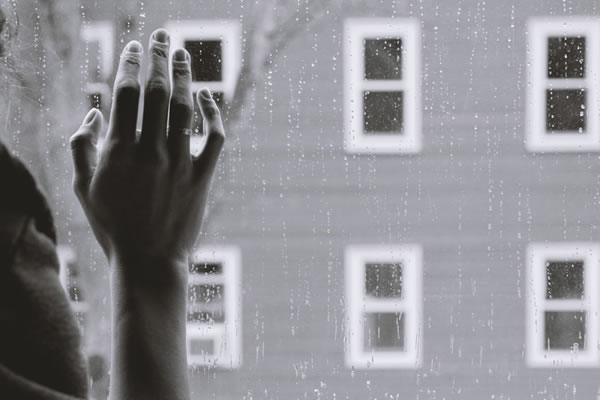
There is an assumption that grief is solely a reaction to death. This isn’t true. The actual emotion of grief is more about loss. The loss of something valued in your life. There are many different ways in which we grieve throughout our lives. With that in mind, yes, a loss of a relative or friend would of course trigger grief but losing a relationship or a lifestyle is also a bereavement.
It is very normal to feel negative emotions synonymous with grief during a period of change in our lives.
Many people are grieving right now. For plans they had made for 2020 and journeys or travels they had planned. The concerts they had tickets for, surprises planned. The months they have spent anticipating a treat, now to have it cancelled or postponed.
Athletes trained months on end but had to accept that was all for nothing this year. Olympians have been asked to postpone retirement or delay their debut performance until 2021. So many aspects of life that we hold dear have been either taken away or changed. With so much sadness in the world, it feels inappropriate to throw an adult tantrum because ‘this sucks’ and ‘it is unfair’. But it does suck. And it is unfair. And in order to accept the situation, we must also accept the emotions that come with it.
Some people will have begun to feel a sense of loss. It hurts. It can be immensely saddening to face the disappointment and anger of such an uncontrollable change to our lifestyles. Some people will lose their jobs. Teenagers are worrying about their exams and are unsure about their future education.
People all over the world are experiencing loss. Many will have lost loved ones. Many have lost businesses or income. Many have lost valuable time. Everyone has lost structure.
If we look at the situation we are facing and accept that it is out of our control, we can perceive it as a bereavement. Bereavement causes symptoms of grief. Grief is something we are all familiar with. It is easier to apply coping mechanisms that we have learnt from previous experiences of grief, than it is to try to invent a new strategy to deal with an unprecedented situation.
It is important to recognise this period of change as a positive thing. Even if the change wasn’t welcomed and it seems like everything is falling apart. Why? Because it’s much easier to adapt our lives and move forward once we shed sense of loss and adapt to the new circumstances. Once we embrace the positives of our new reality, we will be able to be at our most creative. Fresh abilities will appear. If we turn what is the greatest challenge in living memory into an opportunity to develop, we will make the best of it.
We suggest that every day should still have a structure. Even if your list just says, “get up, make tea, read, walk, bed”. Gradually more will find its way onto that list. Make sure to continue normal human acts such as eating at appropriate times, eating well, talking to people and sleeping on a strict schedule. Don’t let the easy stuff become a chore. Write lists of goals for the future, small ones at first. Include things you’d like to do after this period of change is over. Make a list of the places you want to visit, the people you want to see, the food you want to try.
A study by Dutch researchers into how the human brain generates enjoyment, shows that anticipating pleasure gives as much enjoyment as the pleasurable act itself. For example, by looking forward to a holiday for longer, we gain more enjoyment from that same holiday by changing nothing but travel date.
Life can feel very uncertain now, but we can take solace in the truth that globally, we are all in this together. We are all advantaged and disadvantaged, and we can be here to help one another.
We encourage you to accept the feeling of grief and loss. Let it wash over and around you. Make plans for next year. Challenge yourself to grow through it and with thanks to it.




